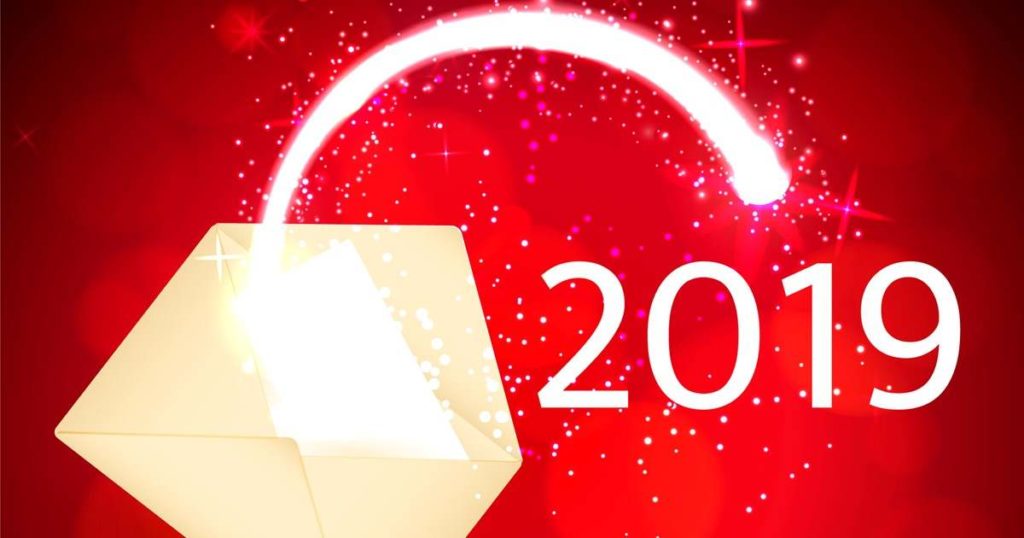In 2019, email held on to its crown as the monarch of marketing channels. As we begin a new decade, let’s reflect on some of last year’s most talked-about and important moments in email.
Email Legislation, Security, and Privacy
The General Data Protection Regulation (GDPR) went into effect in May 2018, and the industry underwent a wave of data privacy and email security developments in 2019 as a result. In January 2019, Google was fined $57 million, and later in the year the Information Commissioner’s Office announced its intention to fine British Airways $230 million and Marriott hotels $123 million for data breaches that compromised consumer privacy.
Meanwhile, GDPR’s closest US counterpart, the California Consumer Privacy Act (CCPA), just wemt into effect (on January 1, 2020), causing a ripple effect; several other states are drafting consumer privacy bills of their own, including New York, Nevada, and Washington DC.
The Federal Trade Commission (FTC) voted to retain the current iteration of the CAN-SPAM law—which regulates commercial email in the US.
Authenticated Received Chain (ARC) is a new email protocol published by the Internet Engineering Task Force in July. It’s designed to retain the email authentication results from Simple Mail Transfer Protocol (SMTP) steps, routing an email from the originating server to a recipient’s mailbox, preventing authentication from breaking. To improve anti-spoofing detection, Microsoft quickly enabled ARC for all Office 365-hosted mailboxes in October, and Google’s Gmail and G Suite, Fastmail, and Proofpoint also announced their support.
Industry Acquisitions, Consolidations, and Changes
In 2019, the market was bullish, and the rate of acquisitions in the email marketing industry was rapid.
Email service providers (ESPs) hoping to gain a market advantage looked to strategic mergers and acquisitions. Examples include Upland Software’s acquisition of Adestra for $56 million, Campaign Monitor’s acquisition of both LiveClicker and Sailthru, Twilio’s finalizing the purchase of SendGrid, valued at $3 billion in an all-stock deal, and most recently Mailgun’s October acquisition of Mailjet for the expansion of its end-to-end email platform.
In April 2019, Publicis announced a $4.4 billion deal to acquire data marketing company Epsilon, IBM sold its Watson Marketing commerce solution to private equity firm Centerbridge Partners, and Ansira acquired BrightWave, an email marketing and eCRM platform. We also witnessed the purchase of two major deliverability and analytics platforms: Validity purchased Return Path, and SparkPost bought eDataSource. Valimail, an anti-phishing company, also announced a $45 million Series C investment round.
Also in 2019, Output Services Group merged two of its email marketing firms, WhatCounts and Windsor Circle, under one brand. EmailStrategie merged with Dolist, and Newlsetter2go combined with Sendinblue.
Mailbox Provider News
In early 2019, Comcast switched to using Vade Secure for its front-end filtering, instead of Cloudmark, and OATH rebranded as Verizon Media.
2019 marked the 15th anniversary of Gmail. Google released its redesigned Gmail mobile app and began the enforcement of an updated user data policy in January. The new policy spelled doom for traditional email panel data collection practices and access to email panel data for eDataSource and Return Path. In February, Gmail implemented TensorFlow, an open-source machine-learning framework, which resulted in the blocking of about 100 million more spam messages each day. Google also added additional options to the right-click context menu in the desktop version of Gmail, unveiled image blocking options providing users more control over email tracking, and rolled out dark theme support for Gmail’s Android and iOS apps.
In April, Google also shuttered Inbox, its innovative email app that served as a testing ground for several of the features now available in the newly redesigned Gmail.
We also witnessed the completion of the merger of the AOL and Yahoo mail infrastructures under Verizon Media. The brand also announced support for one-click unsubscribe and Accelerated Mobile Pages (AMP) support in Yahoo mail (more about that below); and it launched an all-new Yahoo mail app and released a new Postmaster Page (beta).
In August, Cox announced it would no longer support the creation of new email accounts. Apple introduced mail categories to Apple Mail, helping users better manage their inbox, as well as a new Sign in with Apple feature designed to compete with fellow Silicon Valley titans Google and Facebook.
New Email Features, Functionality, and Trends
Brand Indicators for Message Identification (BIMI) is a new industry standard providing senders an easy way to display brand logos when sending authenticated email. It was arguably one of the hottest email topics of 2019 with JPMorgan Chase and CNN receiving the first two BIMI validation certificates, and Google and Verizon Media announcing their support for BIMI in 2020.
AMP for email was also introduced in 2019, which gave developers a new way to create interactive and actionable customer experiences. Gmail officially announced its support for AMP in March, as did Outlook.com and Mail.ru . ESPs have followed suit, declaring their support for the creation of dynamic AMP-powered emails; among them were Cheetah Digital, Amazon SES, Amazon Pinpoint, Braze, MessageGears, BlueShift, SparkPost, AWeber, Klaviyo, Clang, Mailgun, Twilio SendGrid, and Iterable.
Two major mailbox providers aimed to improve the accessibility of email: Yahoo optimized the user experience of its new mail app, and Microsoft’s Cortana can now read email messages aloud.
Looking Ahead
2019 will go down in history as another fruitful year in email, thanks to an increased focus on data privacy and security, innovative developments in features and technologies, key mergers and acquisitions, and numerous mailbox provider improvements.
That growth is a testament to the strength of the email ecosystem. Expect 2020 to be another exciting year as it lays the groundwork for the next decade of innovation within the email industry.

